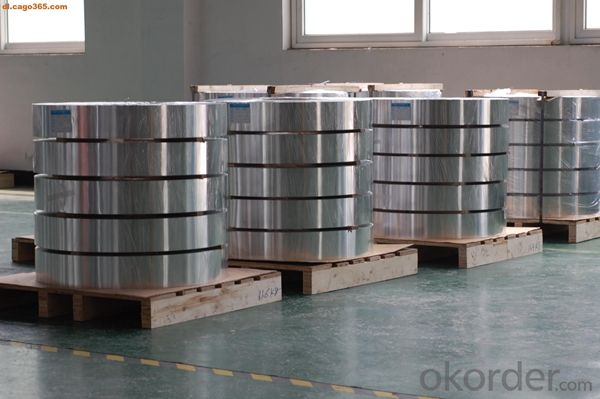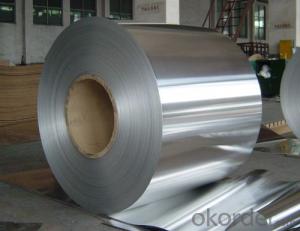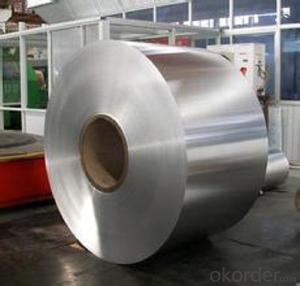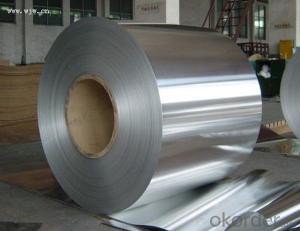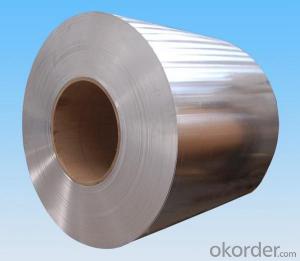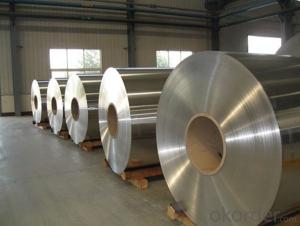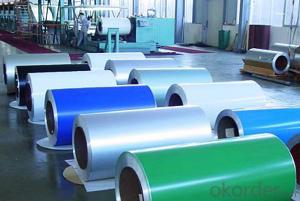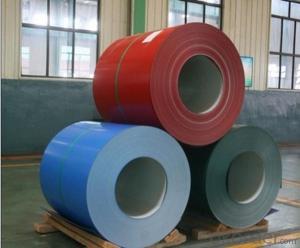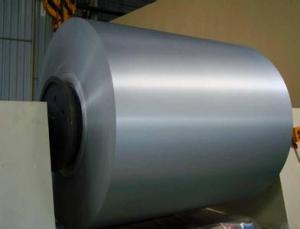Color Coated Aluminum Coil Custom Mill Finished Aluminium Coil AA1100 for Building
- Loading Port:
- Shanghai
- Payment Terms:
- TT OR LC
- Min Order Qty:
- 5 m.t.
- Supply Capability:
- 10000 m.t./month
OKorder Service Pledge
OKorder Financial Service
You Might Also Like
Specification
1. Specification of Mill Finished Aluminium Coil AA1100 for Building
characteristics | Application |
1) Super peeling strength | 1) Building exterior curtain walls |
2) Excellent surface flatness and smoothness | 2) Decoration and renovation additions for old buildings |
3) Superior weather, corrosion, pollutant resistance | 3) Decoration of interior walls, ceilings, bathrooms, kitchens and balconies |
4) Even coating, various colors | 4) Shop door decorations |
5) Fireproof, excellent heat and sound insulation | 5) Advertisement board display platforms and signboards |
6) Superior impact resistance | 6) Wallboards and ceilings for tunnels |
7) Lightweight and easy to process | 7) Industrial materials, materials for vehicles and boats |
2. Application of Mill Finished Aluminium Coil AA1100 for Building
(1).Interior: wall cladding, ceilings, bathrooms, kitchens and balconies, shutters, doors...
(2).Exterior: wall cladding, facades, roofing, canopies, tunnels, column covers , renovations...
(3).Advertisement: display platforms, signboards, fascia, shop fronts...
3. Feature of Mill Finished Aluminium Coil AA1100 for Building
• Our goods quality is top, the surface is smooth, and every steel coil
• No Joint, No Bends, no spots, no roller marks.
• MTC will be provided with goods, third part inspection is acceptable, for example, SGS, BV. Etc
Be free from Oil Stain, Dent, Inclusion, Scratches, Stain, Oxide Dicoloration, Breaks, Corrosion, Roll Marks, Dirt Streaks and other defect which will interfere with use
4. Certificate:
SGS and ROHS(if client request, paid by client), MTC(plant provided), Certificate of Origin(FORM A, FORM E, CO), Bureau Veritas and SGS (if client request, paid by client), CIQS certificate
5. Image of Mill Finished Aluminium Coil AA1100 for Building
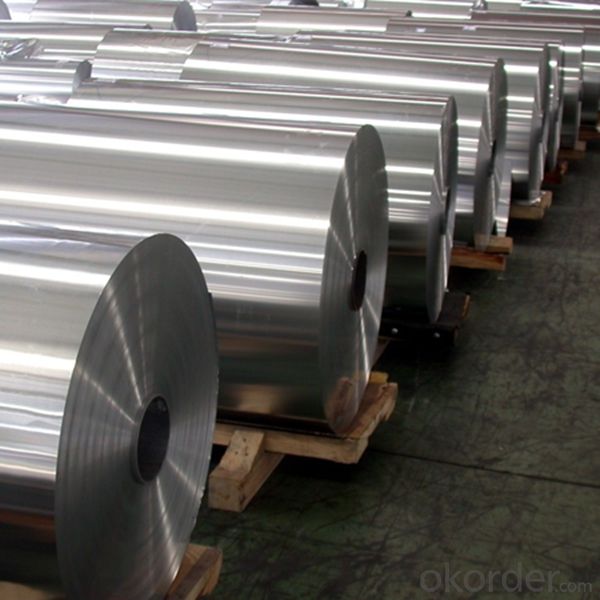
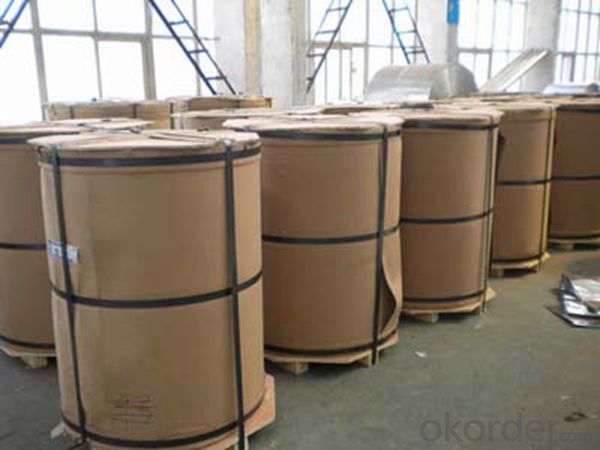
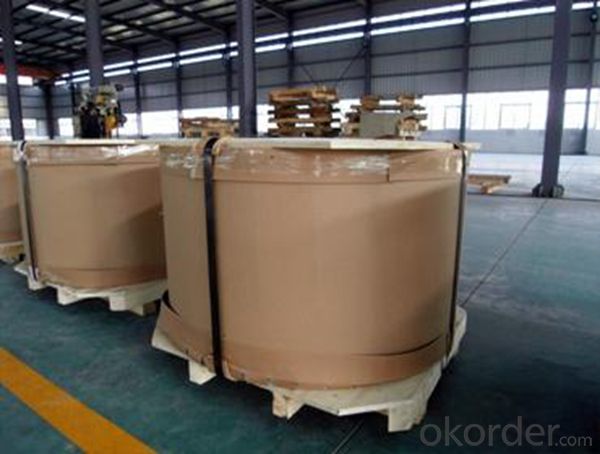
6. Package and shipping of Mill Finished Aluminium Coil AA1100 for Building
eye to wall
eye to the wall
with wood pallet (wooded case also available)
7. FAQ
1) What is the delivery time?
Dpends on actual order, around 20 to 35 days
2)What is the QC system:
We have QC staff of 20 persons and advanced equipment, each production is with MTC traced from Aluminum ingot lot.
3) What market do you mainly sell to?
Australia, America, Asia, Middle East, Western Europe, Africa etc
- Q: Can aluminum coils be used in food processing applications?
- Yes, aluminum coils can be used in food processing applications. Aluminum is a widely used material in the food industry due to its excellent thermal conductivity, corrosion resistance, and lightweight properties. Aluminum coils are commonly used in food processing equipment such as refrigerators, ovens, and food storage units to ensure proper temperature control and hygiene during food processing.
- Q: This question asks for a comparison between aluminum coil and aluminum foil, highlighting their differences.
- <p>Aluminum coil and aluminum foil are both made from aluminum but differ in form and usage. Aluminum coil is a long, continuous roll of aluminum that is typically thicker and more rigid than foil. It is used in various applications such as construction, manufacturing, and packaging due to its strength and durability. Aluminum foil, on the other hand, is a thin, flexible sheet of aluminum that is often used for food packaging, cooking, and insulation. It is lighter and more delicate than coil, making it unsuitable for heavy-duty applications. The primary distinction lies in their thickness, strength, and versatility across different industries.</p>
- Q: What are the common surface protection methods for aluminum coils?
- Various industries widely use several common methods for protecting the surface of aluminum coils. These methods aim to ensure the long-term durability and performance of the coils by preventing corrosion and other types of damage. Anodizing is one of the most common surface protection methods for aluminum coils. It involves immersing the coil in an electrolyte bath and applying an electric current to create a protective oxide layer on the surface. This oxide layer not only improves the appearance of the coil but also enhances its resistance to corrosion, scratching, and wear. Coating is another popular method for protecting the surface of aluminum coils. It involves applying a layer of paint or coating material onto the coil's surface. Coatings can be applied using various techniques, such as electrostatic spraying, roll coating, or coil coating. These coatings act as a barrier between the aluminum surface and external elements, safeguarding it from moisture, UV radiation, and other environmental factors that can cause corrosion and damage. Protective films also offer a way to protect aluminum coils. These films, typically made from polyethylene or similar materials, are applied as a temporary protective layer. They help prevent scratches, abrasions, and other types of damage during transportation, storage, and installation. When it's time to use the aluminum coil, the protective film can be easily peeled off, leaving behind a clean and undamaged surface. Proper storage and handling practices are also crucial for protecting aluminum coils. Storing the coils in a dry, clean, and well-ventilated area, away from corrosive substances, can significantly extend their lifespan. Additionally, handling the coils with care and using appropriate lifting and transportation equipment can prevent physical damage that could compromise their integrity. In conclusion, the common methods for protecting the surface of aluminum coils include anodizing, coating, the use of protective films, as well as proper storage and handling practices. By employing these methods, aluminum coils can be effectively safeguarded against corrosion, scratching, and other forms of damage, ensuring optimal performance and longevity.
- Q: Can aluminum coils be anodized?
- Indeed, it is possible to anodize aluminum coils. Anodizing, an electrochemical technique, enhances the existing oxide layer on the aluminum's surface, rendering it denser, sturdier, and more resistant to corrosion. This particular process finds widespread usage in aluminum sheets, plates, and coils. Anodizing can be effectively employed on both flat and shaped aluminum coils, imparting them with a plethora of appealing hues and finishes. Furthermore, the anodized coating significantly improves the aluminum's capacity to accommodate paint and adhesives, thereby rendering it a highly sought-after option for numerous applications, including architectural cladding, automotive trim, and electronic components.
- Q: Can aluminum coils be used in vacuum applications?
- Yes, aluminum coils can be used in vacuum applications. Aluminum is a commonly used material in vacuum systems due to its excellent properties such as low outgassing, high thermal conductivity, and good corrosion resistance. These properties make aluminum coils suitable for various vacuum applications, including but not limited to, vacuum chambers, vacuum pumps, cryogenic systems, and particle accelerators. However, it is important to note that aluminum can be reactive with certain gases or chemicals, so it is essential to consider the specific requirements and compatibility of the vacuum application before using aluminum coils.
- Q: How much cube is the 0.9mm aluminum rolling?
- This is a common problem. Anyone who had received high school education can calculate it very quickily. One way is to calculate sectional area with circular area, then times the thickness of the aluminum rolling. Another way is to use the outer diameter circular area to subtract the core area and then times the thickness of aluminum rolling.
- Q: Are aluminum coils suitable for low-maintenance roofing applications?
- Yes, aluminum coils are suitable for low-maintenance roofing applications. Aluminum is highly resistant to corrosion, lightweight, and durable, making it an ideal material for roofing. It requires minimal maintenance, as it does not rust or rot like other metals. Additionally, aluminum roofs are known for their longevity and ability to withstand harsh weather conditions, further reducing the need for maintenance.
- Q: How are aluminum coils used in the production of heat sinks?
- Aluminum coils play a vital role in the production of heat sinks due to their excellent thermal conductivity and malleability. Heat sinks are designed to dissipate the excess heat generated by electronic components such as processors, integrated circuits, and power transistors. By utilizing aluminum coils in the manufacturing process of heat sinks, several key advantages are realized. Firstly, aluminum coils possess high thermal conductivity, which allows for efficient transfer of heat from the electronic component to the heat sink. This is crucial for maintaining the optimal operating temperature of the electronic device, as excess heat can cause performance degradation and even permanent damage. The high thermal conductivity of aluminum ensures that the heat is rapidly dissipated away from the electronic component, preventing overheating. Secondly, aluminum coils are highly malleable, making them easy to shape and mold into various designs required for heat sinks. Heat sinks are available in different sizes and shapes, with the most common being finned heat sinks. The fins on the heat sink increase the surface area, allowing for greater heat dissipation. Aluminum coils can be easily formed into these fin shapes, enabling the heat sink to effectively release heat into the surrounding environment. Additionally, aluminum coils are lightweight and corrosion-resistant, making them ideal for use in heat sinks. The lightweight nature of aluminum ensures that the heat sink does not add significant weight to the electronic device, which is especially important in applications where weight restrictions are crucial, such as aerospace or portable electronics. Moreover, the corrosion-resistant properties of aluminum ensure the longevity and durability of the heat sink, even in harsh environments. In conclusion, aluminum coils are essential components in the production of heat sinks due to their high thermal conductivity, malleability, lightweight, and corrosion-resistant properties. By incorporating aluminum coils into the manufacturing process of heat sinks, efficient heat dissipation and improved performance of electronic components can be achieved, ultimately prolonging the lifespan of electronic devices.
- Q: why is aluminum used for railway lines?thanks x
- Aluminum is strong ans light weight.
- Q: Which aluminum roll is good?
- Buy aluminum volumes, choose Shanghai Jin language metal materials Co., Ltd., Shanghai Jin language metal materials Co., Ltd. is committed to aluminum coil wholesale, sale and processing.
Send your message to us
Color Coated Aluminum Coil Custom Mill Finished Aluminium Coil AA1100 for Building
- Loading Port:
- Shanghai
- Payment Terms:
- TT OR LC
- Min Order Qty:
- 5 m.t.
- Supply Capability:
- 10000 m.t./month
OKorder Service Pledge
OKorder Financial Service
Similar products
Hot products
Hot Searches
Related keywords


